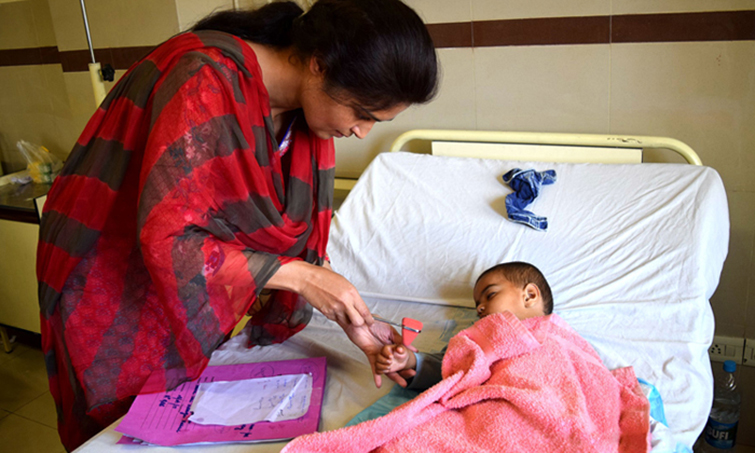
By Anam Sairah Khan
Sakhi Sarwar, April 23, 2017 - In a small health facility in Sakhi Sarwar, a little town in Pakistan’s Punjab province, Dr Ujala Nayyar, WHO’s Surveillance Officer for Punjab, leans over a register to review all doctors’ appointments in the recent months, as District Surveillance Coordinator (DSC) stands by her side to assist her. She is checking all records that may reflect signs of polio, like sudden onset of paralysis or floppy weakness in arms, legs or any part of the body that indicate acute flaccid paralysis (AFP).
As she searches through the register, she checks if the serving doctor knows what polio symptoms are, and what he needs to do if a child affected with AFP is brought to the health facility. This detailed review is a constant practice in Punjab to ensure optimal surveillance quality for the Global Polio Eradication Initiative (GPEI) efforts.
Dr Nayyar and her team works with just one aim: to eradicate poliovirus. A network of 47,000 female health workers, religious leaders, traditional healers and more than 10,000 doctors in Punjab helps her team identify paralyzed children in Punjab. There are 4,774 active case reporting sites in Punjab. Approximately 800 stool samples of acute flaccid paralysis (AFP) cases are collected on a monthly basis and sent to the National Institute of Health (NIH) to confirm what caused the paralysis. This data enables the Polio Eradication Initiative (PEI) team to identify campaign triggers in order to plan for case responses and interrupt polio virus circulation is identified areas.
A network of 47 Polio Eradication Officers in 36 districts of Punjab works relentlessly to ensure no paralysis case is missed. The recent reporting of polio victim from Lodhran, Punjab, indicates high sensitivity of the surveillance system in Punjab.
Surveillance is one of the key activities of the polio eradication initiative in Pakistan and many innovative approaches are being introduced to help detect where the virus is circulating including surveillance reviews and regular AFP orientation sessions for medical officers and consultants on reporting AFP cases. ‘We have to be smart enough to run ahead of virus to interrupt its circulation in Pakistan,’ said Dr Nayyar.
